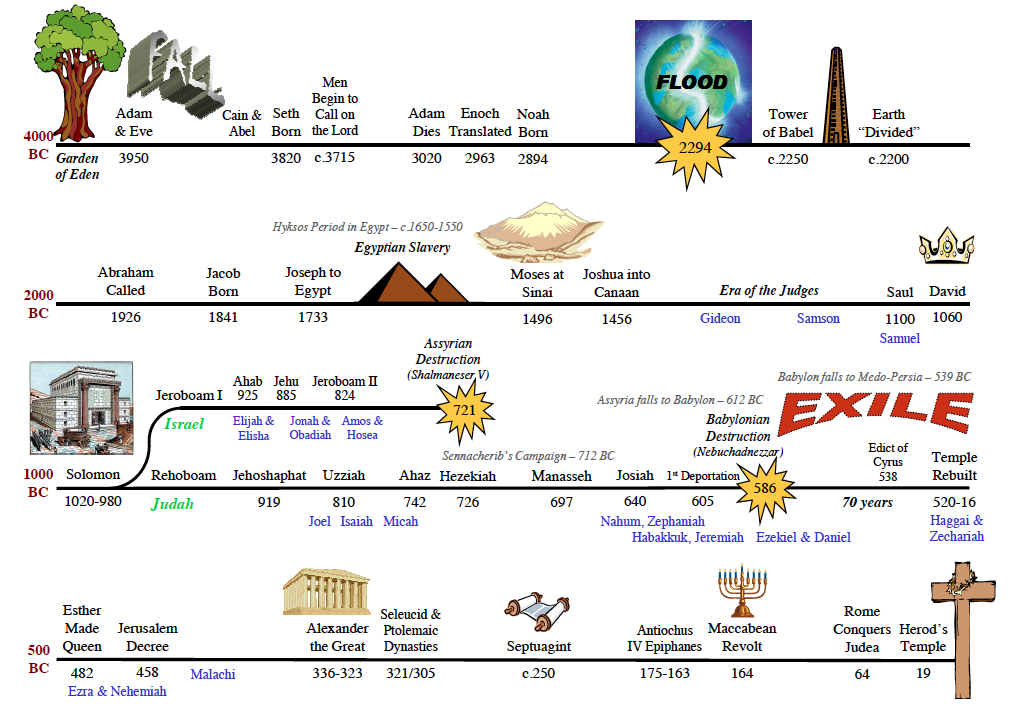

The Bible timeline includes King Saul, the famous King David-from whose family Jesus Christ would be born-and David’s son, the wise King Solomon, presided over a united kingdom of Israel. The period of Israel’s ten judges ended about 1052 BC, the onset of King Saul’s reign, when most scholars agree that concrete, historically verifiable dating is possible. For example, Moses is estimated to have been born in 1526 BC and Joshua to have entered the Promised Land approximately 1406 BC.

Within the period between Abraham’s birth and the apostle John’s writing of the book of Revelation, history helps to place many of the events of the Old and New Testaments on the Bible timeline.

Prior to Abraham’s birth, the Bible timeline beginning in Genesis contains a rich history of creation, Adam and Eve, the Fall of Man, extensive genealogies, stories of human travails leading up to Noah and the Great Flood (date also unknown), and much more. From a more practical viewpoint, the Bible timeline on which most scholars agree begins with the calling of Abram, renamed “Abraham” by God (Genesis 17:4–6) in the year 2166 BC, and ends with the writing of the book of Revelation in approximately AD 95. In the most basic sense, the Bible timeline is endless and eternal, as it chronicles creation (date unknown Genesis 1:1–31) through the end of ages (Matthew 28:20).


 0 kommentar(er)
0 kommentar(er)
